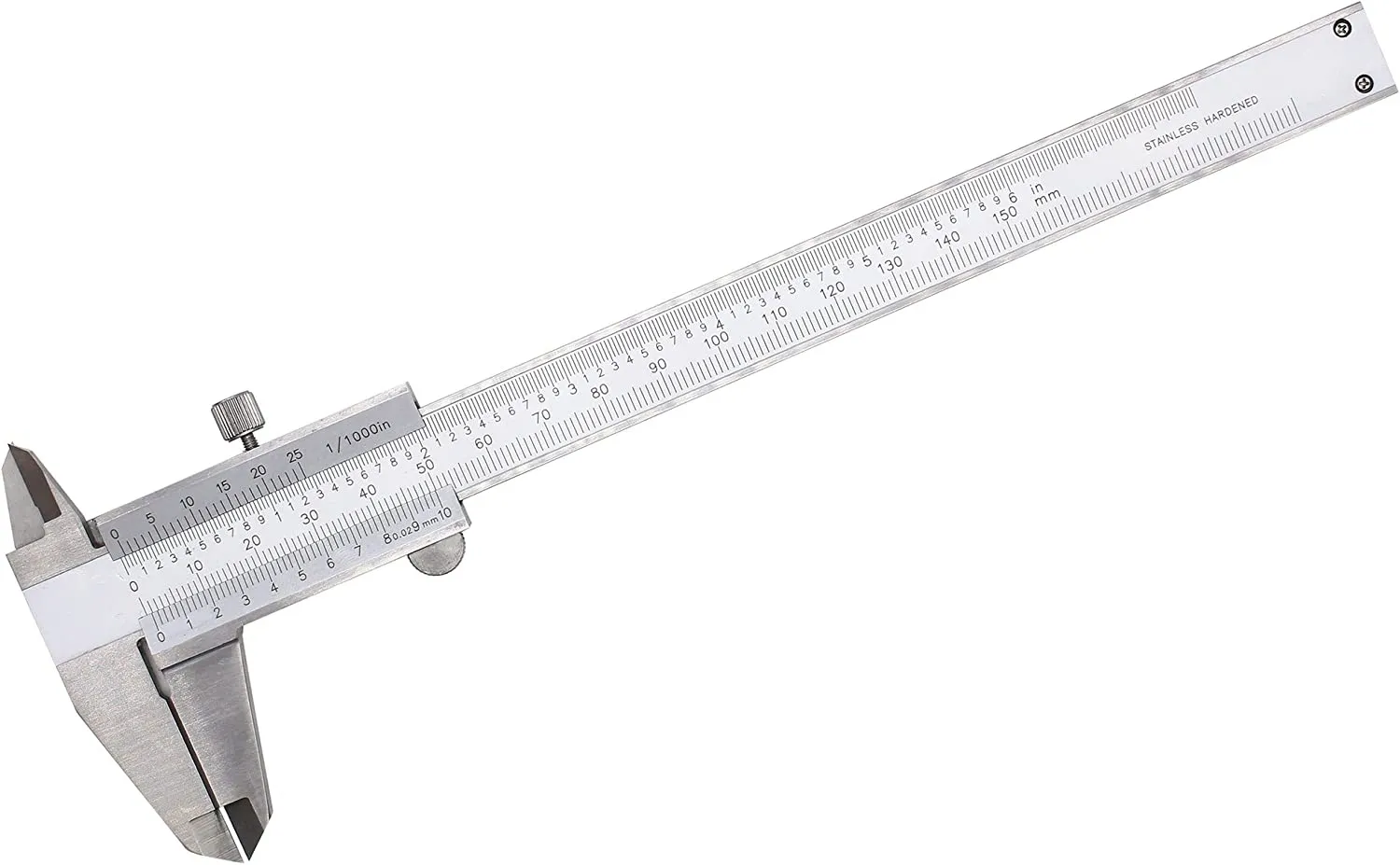깊이 버니어 캘리퍼는 정밀 측정 기구로, 구멍, 홈, 오목부, 그리고 작업물 내부의 다른 형상 깊이를 높은 정확도로 측정하도록 특별히 설계되었습니다. 주척척(scales), 슬라이딩 버니어 척도, 고정된 받침면(또는 기준 턱), 그리고 깊이 막대(또는 탐침)로 구성된 이 도구는 버니어 척도와 주척도의 눈금 간 차이를 이용하여 주척도 최소 눈금보다 더 미세한 측정이 가능하도록 작동합니다. 일반적으로 깊이 버니어 캘리퍼는 0~150mm, 0~300mm 또는 그 이상의 측정 범위를 가지며, 표준 모델의 경우 해상도는 0.02mm(0.001인치)입니다. 이는 정밀 제조, 기계 공학, 품질 관리 공정에서 필수적인 도구로 자리잡고 있습니다. 고정된 받침면은 작업물 표면에 안정적으로 지지되는 기준점을 제공하고, 깊이 막대는 측정 대상 형상 안으로 뻗어나가며, 버니어 척도와 주척도를 일치시켜 정확한 깊이 값을 읽어냅니다. 정확도 보장을 위해 고품질 깊이 버니어 캘리퍼는 경질 스테인리스강으로 제작되어 산업 현장에서 자주 노출되는 냉각제, 오일, 이물질 등으로부터 마모, 부식, 변형에 강합니다. 깊이 막대는 연마 처리되어 매끄러운 표면 마감을 이루며, 확장 및 수축 시 마찰을 최소화합니다. 척도는 다양한 조명 조건에서도 쉽게 읽을 수 있도록 높은 대비의 새겨진 표시를 사용합니다. 고급 모델에는 측정 후 버니어 척도를 고정할 수 있는 잠금 나사가 포함되어 있어 실수로 움직이는 것을 방지하여 결과의 신뢰성을 높입니다. 실제 응용 분야에서 깊이 버니어 캘리퍼는 엔진 블록의 맹공(blind hole) 깊이 확인, 금형 부품의 홈 두께 측정, 가공 부품의 오목한 깊이 등을 측정하여 설계 사양을 충족하는지 검증하는 데 사용됩니다. 예를 들어 자동차 제조에서는 밸브 시트의 깊이를 측정하여 밸브 정렬이 올바른지 확인하고, 항공 우주 공학에서는 연료 라인 오목부 깊이를 측정하여 누수 없는 밀폐를 보장합니다. 깊이 버니어 캘리퍼를 선택할 때는 측정 범위, 해상도, 제작 품질이 해당 응용 목적에 적합해야 합니다. 정밀 가공에는 0.01mm 해상도 모델이 필요할 수 있지만, 일반 제작에는 0.02mm 해상도 모델로 충분할 수 있습니다. 정확도 유지에는 적절한 교정과 유지보수가 필수적입니다. 즉, 정기적인 청소와 마스터 게이지와 비교한 주기적 검증이 필요합니다. 국제 표준인 ISO 3599 및 ASME B89.1.13은 이러한 기구의 설계와 성능을 규정하여 제조사 간 일관성과 정밀 부품의 글로벌 무역을 촉진합니다.


